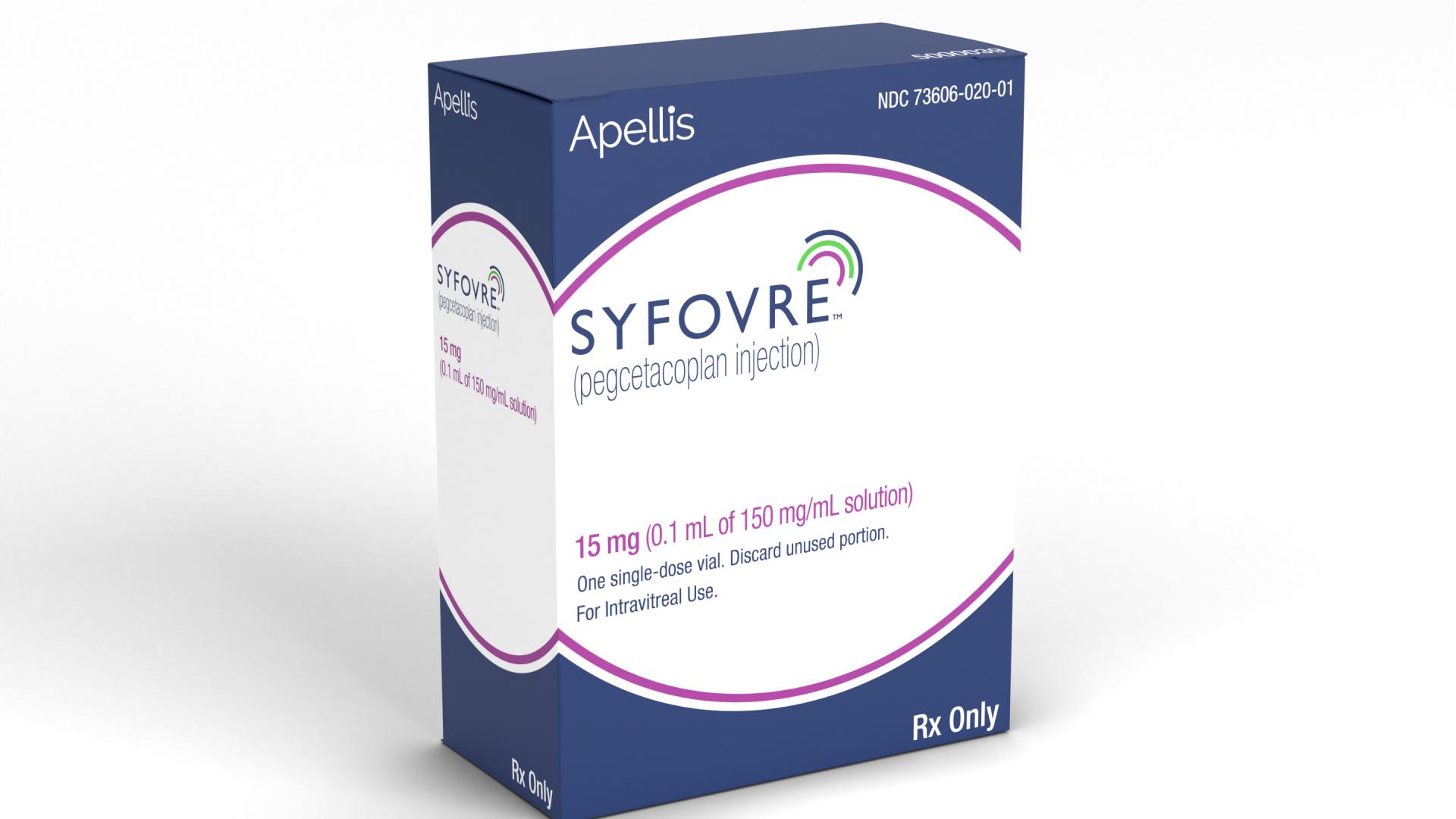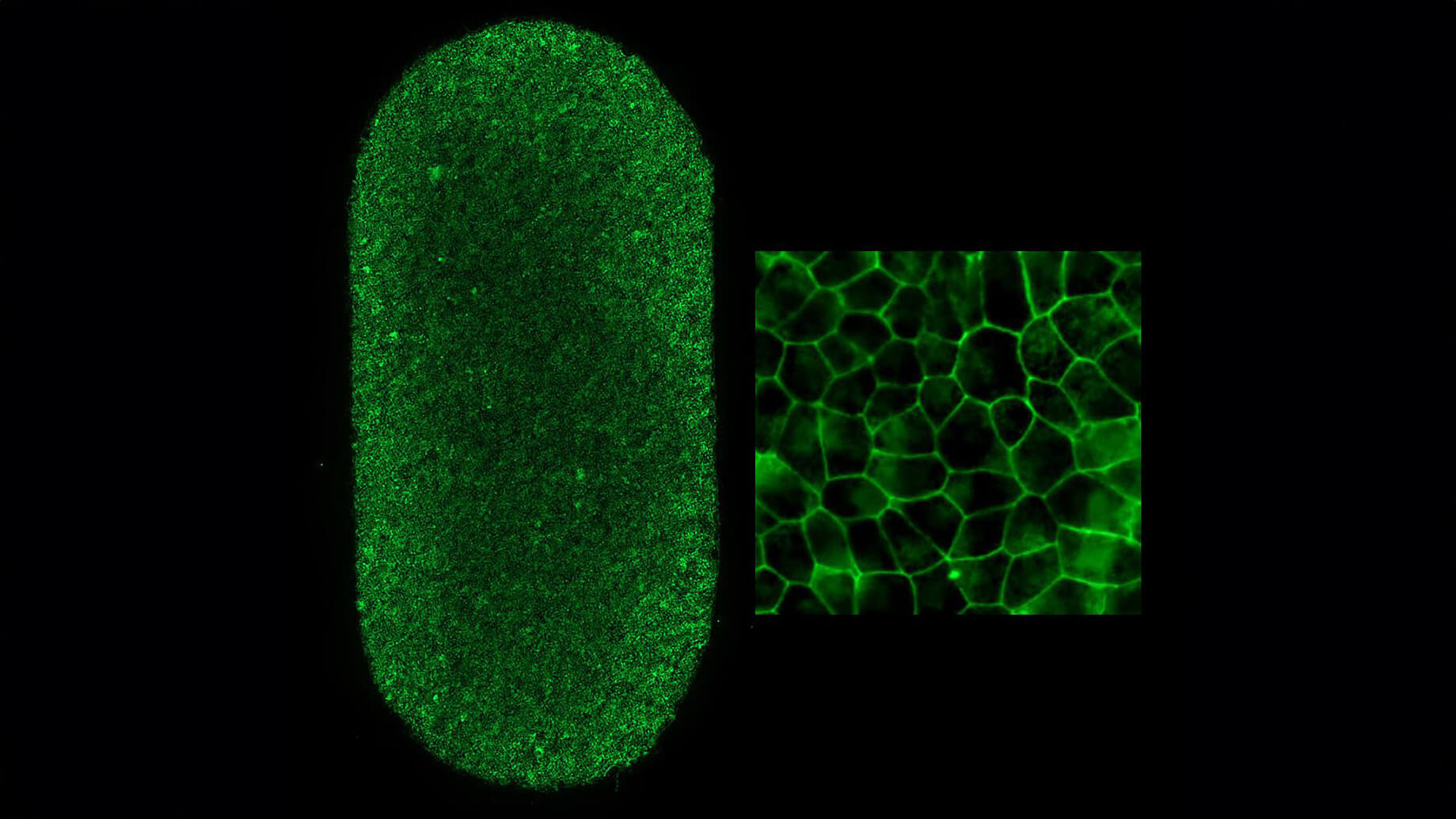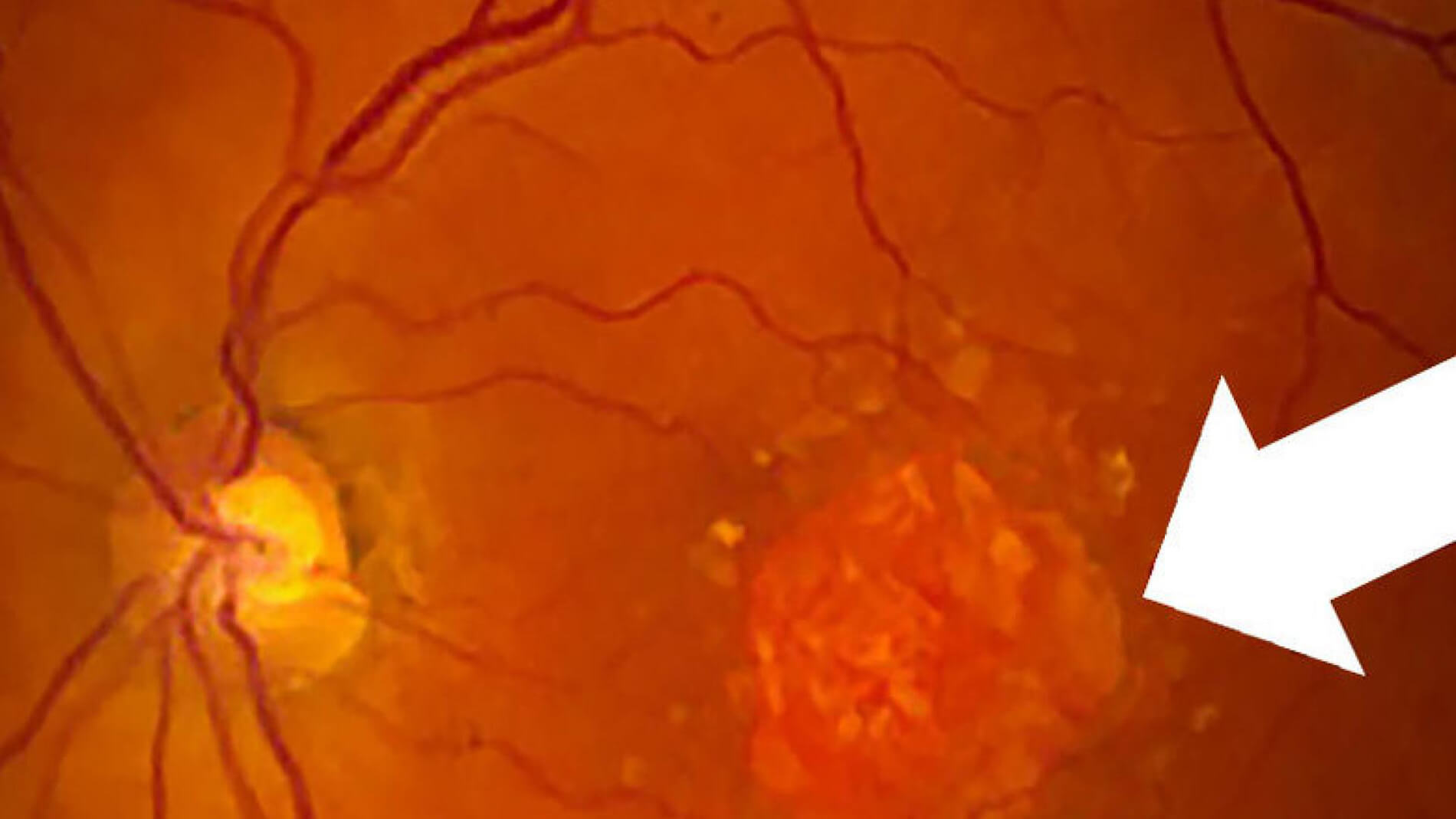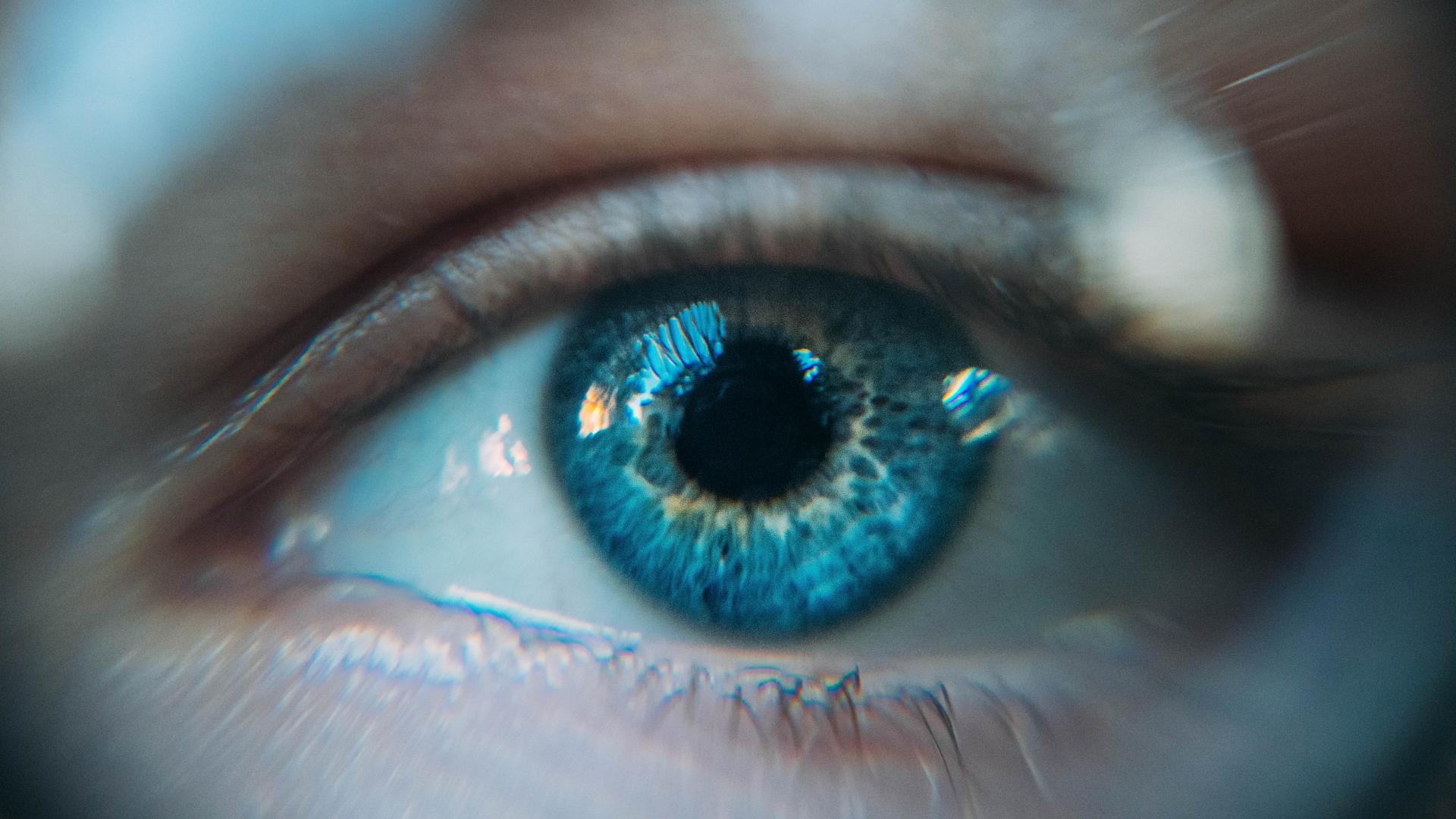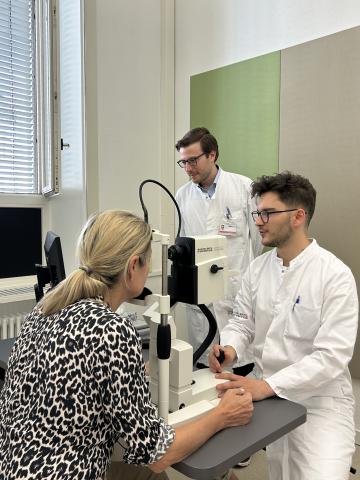
Age-related macular degeneration (AMD) causes devastating vision loss over time. Early detection is key to slowing irreversible vision loss; however, best-corrected visual acuity—the most common vision test—does not recognize early AMD. Thus, clinical trials focus mostly on late AMD despite the limited treatment potential.
BrightFocus Foundation Macular Degeneration Research grant recipient Maximilian Pfau, MD, aims to bridge this gap in available testing for AMD and detect the condition as early as possible. His Macular Degeneration Research-funded project will establish vision tests that evaluate the eye’s dark adaptation following exposure to bright light. Using retina tracking, Dr. Pfau will test small retinal regions prone to subtle photoreceptor dysfunction in an unprecedentedly accurate manner, making disease progression measurable at the earliest stage. Learn more about Dr. Pfau and his research below.
What inspired you to investigate night vision tests for age-related macular degeneration (AMD)?
During residency, I encountered many individuals with AMD, particularly those with late-stage disease who were struggling with night vision. They often dreamed of enjoying their retirement, whether by caring for their grandchildren or pursuing hobbies like writing. Their deteriorating vision made these dreams difficult to achieve.
Seeing how this condition affected their daily lives inspired me to focus on developing better tests that could detect AMD earlier, especially the subtle night vision problems that often go unnoticed. Even a small delay in central vision loss (e.g., two years) could make a substantial difference, enabling individuals to see a grandchild’s first steps with 20/30 vision instead of just perceiving outlines. As a result, I have now dedicated my research to identifying the earliest structural and functional changes in the retina, with the goal of developing tools to evaluate preventative treatments.
Why is this work important to you?
I believe that by catching AMD early, we can make a real difference in the lives of people at risk of losing their vision. In theory, early intervention that delays the onset of atrophy by just 10 years (or 10% slowing across a human lifespan) would allow the vast majority of people to maintain their independence and enjoy meaningful life experiences across their lifespan. However, current measures of disease progression are only suitable to track later stages of the disease. Thus, the benefits of low-risk, early interventions cannot be evaluated to date.
How does this project advance our ability to understand, detect, or treat AMD?
This project aims to create new tests that are more sensitive to the earliest changes in vision caused by AMD. By focusing on how well the eye adapts to darkness—a key issue in the early stages of the disease—we hope to detect AMD sooner than current methods allow. These tests will help us understand how the disease progresses and could lead to earlier and more effective treatments. Ultimately, we hope to provide vision tests that enable those with AMD and physicians to evaluate early intervention with low-risk treatment strategies (e.g., nutritional interventions).
What do you hope this research project will lead to? What do you imagine the next step being?
I hope this research will lead to the development of reliable tests that doctors can use in clinics to identify AMD in its earliest stages. The next step would be to use these tests in large clinical trials to evaluate new treatments that could stop or slow down the progression of AMD before significant vision loss occurs. This achievement would be a major step forward in managing the disease and improving the quality of life for people with AMD.
What impact will the funding from Macular Degeneration Research have on your research?
The funding from Macular Degeneration Research will be crucial in allowing us to develop these innovative vision tests. It will enable us to conduct the necessary studies with healthy volunteers and participants with AMD, refine our testing methods, and ultimately bring these new tools to the clinic. Without this support, advancing our research to this level would be much more challenging. Moreover, BrightFocus Foundation has an excellent international reputation and provides a strong signal for future grant applications.
Through the generosity of our donors, Macular Degeneration Research, a BrightFocus Foundation program, is funding 49 active research grants around the world investigating the causes and potential prevention strategies, treatments, and a cure for AMD. Explore the research.
About BrightFocus Foundation
BrightFocus Foundation is a premier global nonprofit funder of research to defeat Alzheimer’s, macular degeneration, and glaucoma. Through its flagship research programs — Alzheimer’s Disease Research, Macular Degeneration Research, and National Glaucoma Research— the Foundation has awarded nearly $300 million in groundbreaking research funding over the past 51 years and shares the latest research findings, expert information, and resources to empower the millions impacted by these devastating diseases. Learn more at brightfocus.org.
Disclaimer: The information provided here is a public service of BrightFocus Foundation and is not intended to constitute medical advice. Please consult your physician for personalized medical, dietary, and/or exercise advice. Any medications or supplements should only be taken under medical supervision. BrightFocus Foundation does not endorse any medical products or therapies.
- Dry AMD
- Research Spotlight
- Wet AMD
Featured Grant Recipients

Maximilian Pfau, MD
Institute of Molecular and Clinical Ophthalmology Basel (Switzerland)





